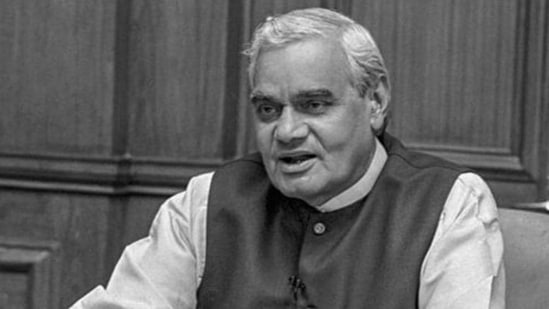Atal Bihari Vajpayee's 3 iconic contributions to India's science & technology
Atal Bihari Vajpayee is the third prime minister to hold the office thrice. His tenure witnessed India making significant progress across all sectors. Nation remembers the statesman on his 4th death anniversary.
India marks the fourth death anniversary of former prime minister Atal Bihari Vajpayee. A brilliant orator and a leader who commanded immense respect and admiration from leaders and opposition alike, Vajpayee donned several hats during his political career. As the prime minister, he is known for India's achievements in the field of science and technology. As the nation remembers him on his death anniversary, here are some achievements India had in the field of science and technology.

1) India had successfully conducted its first nuclear test in Pokhran in 1974 during the prime ministership of Indira Gandhi. On May 18, 1998, India again carried out nuclear test in Pokhran during Vajpayee government's tenure. Soon after the tests, Vajpayee declared India to be a full-fledged nuclear test. India suffered sanctions by United States and Japan, but remained unmoved.
2) When Vajpayee took over as prime minister in 1998, the telecom sector was monopolised. He took various steps to free up the sector and expand it throughout the entire country. The NDA government under Vajpayee released the telecom policy of 1999. This was instrumental in bringing up private players and structural reforms in the sector. It led to significant growth in mobile subscribers.
For this contribution, Bharti Airtel chairman and founder Sunil Bharti Mittal called him ‘the father of modern telecommunication in the country’. He paid tribute terming him as a great economic reformer whose National Telecom Policy in 1999 “helped the industry overcome some of its toughest early challenges.”
3) Addressing the nation from the rampart of the Red fort on India’s 56th Independence Day in 2003, he unveiled the first moon exploration plan of India- Chandrayaan 1. He trumpeted, “Our country is now ready to fly high in the field of science. I am pleased to announce that India will send her own spacecraft to the moon by 2008. It is being named Chandrayaan”.
Remembering Vajpayee, Dr. Kasturirangan, ISRO Chief at the time of the mission showed a glimpse of Atal’s Sanskrit proficiency when he changed the name of the mission from Somayaan to Chandrayaan. “Mr Vajpayee said the mission should be called Chandrayaan, and not Somayaan, as the country has emerged as an economic power, and will make many exploratory journeys to the Moon.”






